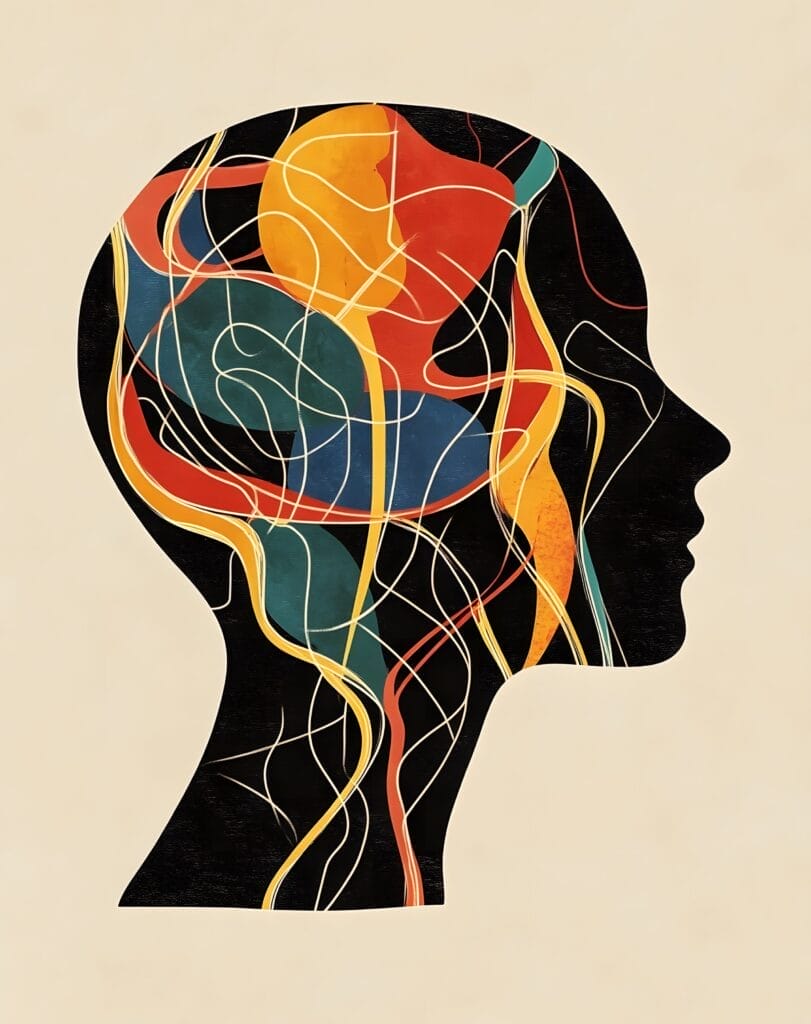ADHD Residential Treatment Program
Comprehensive behavioral health treatment facilities for adults in a safe and comforting atmosphere in Southern California.


ADHD Residential Treatment
A residential treatment program for ADHD is uncommon, however the benefits have proven to be quite effective with treating this condition. Attention-Deficit/Hyperactivity Disorder, otherwise known as ADHD, is a common disorder found in young people and adults. It is characterized by an inability to concentrate for long periods of time, being easily distracted, and difficulty staying on task. ADHD can also include hyperactivity, especially in children and young adults.
The hyperactive component is what separates ADHD from Attention-Deficit Disorder (ADD). Although they are closely related and used interchangeably, they are different and often misdiagnosed. Causes of ADHD are still debated, but treatments range from medication to psychotherapy.
Diagnosing ADHD
Unfortunately, there is no singular test for diagnosing ADHD. This makes a thorough evaluation necessary to confirm a diagnosis and rule out other possible diagnoses. An in-depth examination is also needed to determine the presence of co-occurring conditions or other potential mental health issues.
These evaluations require observation from a professional therapist and must include a thorough examination of academic, social, and emotional history. It is important to know information about the development of the individual. It’s also beneficial to have knowledge of their development and when symptoms began.
Many different professionals can potentially diagnose ADHD, including clinical psychologists, clinical social workers, nurse practitioners, neurologists, psychiatrists, and pediatricians. While many different people can offer a diagnosis, they all must adhere to the DSM-5.
With any evaluation, the diagnosing party should perform a thorough examination-including measuring hearing, vision, and the like to best isolate symptoms and rule out similar disorders. Occasionally, those suffering from ADHD symptoms may also have a thyroid or other hormonal disorder.
Diagnosing ADHD in adults vs children can prove difficult without a thorough knowledge of childhood behavioral issues. A comprehensive record of school performance, home life, and relational tendencies can go a long way towards helping achieve a successful diagnosis.

ADHD Residential Treatment
While it can be difficult to completely get rid of ADHD Symptoms, they can be managed. This is why it is important to find the right type of treatment for ADHD. Most people assume that ADHD can only be controlled with medication. However, there are additional options to help each individual learn how to manage their symptoms as well. A residential treatment program for ADHD can be extremely helpful due to the consistent therapy, around-the -clock care and sole focus on treating this mental health condition.
Researchers say that up to 60% of those who suffer from ADHD As children will continue experiencing symptoms as adults. Many adults with ADHD have never actually been diagnosed. So, they may be attempting to navigate life without any help with their disorder. It is also possible that they were also misdiagnosed with depression, anxiety, or even bipolar disorder.
As millions of Americans have found, ADHD is readily treatable. However, finding the right combination of treatments can take time and a “trial and error” approach. The most common treatments involve some combination of medication (usually a stimulant such as Adderall) and psychotherapy.
Therapy alone can be an effective method of treatment, but many adults do find meaningful results with medication. Whatever you decide, you should never begin treatment without first consulting with a licensed and trained professional.
We Can Help You Manage ADHD At Montare Behavioral Health
At Montare Behavioral Health, we are committed to helping you find freedom from your struggles. Our trained professionals will help remove the anxiety from beginning treatment for you, your child, or your loved one.
Since ADHD often occurs alongside other disorders, a fully equipped treatment center like Montare Behavioral Health can be an incredible treatment option. Contact us today to see how we can help you take the first steps!
Living With and Managing ADHD
ADHD can be extremely difficult to deal with for children and adults alike. Not only is it tough to tackle the symptoms themselves, but those who suffer from ADHD often face intense social scrutiny or even ridicule from society, especially as children. While much of the stigma around ADHD has been attacked in recent years, it is still very difficult to function with ADHD, especially without treatment.
Some experts have even linked ADHD with an increased risk for car accidents, academic failure, or even criminal activity. However, others portray ADHD in a more positive light-embracing it as simply a different, more creative way to approach learning and life.
ADHD is often accompanied by additional diagnoses or disorders, such as depression, anxiety, OCD, or even bipolar. While ADHD presents differently in everyone, it is important to know you are not alone and millions of others are dealing with the same struggle.

Montare Behavioral Health
Tour Our Facilities



Learn More
About Anxiety
ADHD in Children and Teenagers
If your child or teenager has trouble staying on task, finds it difficult to sit still for any period, or often interrupts others, they may be showing signs of ADHD. Often children with ADHD also daydream excessively and show difficulty with classroom learning. However, because these signs can occur with almost any child normally, it is important to receive a professional diagnosis before beginning treatment or medication.
Of course, it is extremely common to encounter these behaviors in even the most well-behaved child from time to time. However, for some children and teens, these patterns become far too common and even uncontrollable-making it extremely difficult for them to function at home, in social groups, or the classroom. Left undiagnosed or untreated, these actions can have severe social and relational impacts. Eventually, they can be serious roadblocks to getting into college or succeeding in a chosen career.
ADD is generally noticed through a pattern of impulsive, inattentive behavior characterized by the inability to sit still or focus. ADHD includes the hyperactivity component that makes it difficult for children to sit still or control their outbursts or emotions.
Children with these disorders find it hard to focus on details, maintain attention to conversations or instructions, or stay organized. Children and young adults with ADHD are easily drawn off task and can appear forgetful or unable to complete simple chores.
A child or young adult diagnosed with ADD may or may not also exhibit symptoms of the hyperactivity component. This includes behaviors such as fidgeting, constant running, jumping and climbing, or the seeming inability to ever just play quietly. While these children may seem willfully disobedient or difficult, these behaviors are usually involuntary and extremely difficult to overcome without treatment or medication.
ADHD in Adults
In contrast to medical issues such as broken bones or different cancers, ADHD generally does not show outward physical signs or markers that can be found in a blood test. Generally speaking, ADHD symptoms in adults often overlap with those of other, similar psychological disorders that could have gone undiagnosed since childhood.
In adults, ADHD tends to affect one’s ability to focus on details, stay on task for any amount of time, listen attentively to others, or follow through on assignments or instructions. Organizing or getting started on a task may prove difficult or impossible. Often, those who suffer from ADHD may seem forgetful and often misplace or lose things they need to make it through the day.
The signs of ADHD generally appear in childhood but can persist undiagnosed, especially if the child was still relatively high-functioning. While there is no “adult-onset ADHD, it can “appear” later in life, particularly if someone is transitioning jobs, going back to school, or spending more time than usual sitting at a desk.
Thankfully, there are easy and readily available treatments for ADHD in both adolescents and adults.
Potential Causes for ADHD
The CDC estimates anywhere between 5% and 12% of Americans suffer from ADHD. Those numbers represent a significant increase over the last two decades. While diagnosing and medicating have become more common, there is no reason to believe ADHD is a new phenomenon. There is no one consensus on a cause for ADHD. However, research has given us some ideas about where to begin. Potential factors that lead to an increased likelihood of ADHD diagnosis include:
- Brain anatomy and function – Research has shown that some parts of the brain can be smaller or take more time to develop in children that demonstrate symptoms of ADHD. This does not mean that these children are impaired or not intelligent. But, it could be a cause of some of the more prominent ADHD Symptoms.
- Genetics- Various research studies have shown that behavioral disorders such as ADHD are genetic. The condition has been known to run in families from generation to generation. A parent with ADHD has a 25% chance of having a child with ADHD Symptoms. Ione child in the family has ADHD, there is a significantly increased chance of another sibling developing symptoms as well.
- Significant head trauma- Head trauma such as concussions can often lead to ADHD, especially if suffered in childhood. The developing brain is particularly susceptible to long term side effects from traumatic injuries.
- Toxins or environmental factors- In very rare cases, toxins or environmental concerns, such as lead exposure at a young age, can lead to presenting ADHD symptoms.
Despite a rise in ADHD diagnosis, there is no reason to believe ADHD is caused by fringe theories such as immunizations, sugary diets, food additives, or allergies. Many experts attribute a rise in ADHD cases to better awareness and lower cost/ ease of treatment options.










